Israel poised to hit Iran oil and gas after Tel Aviv injuries, official says
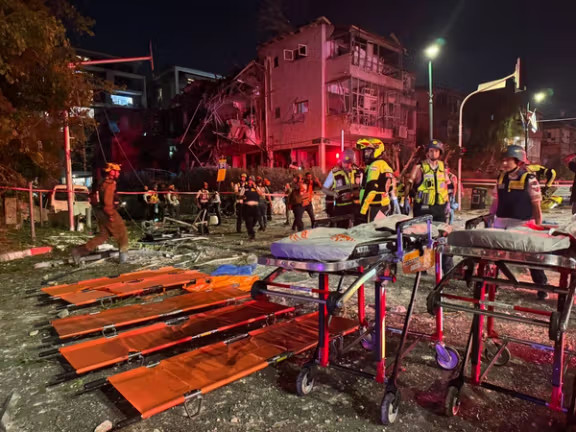

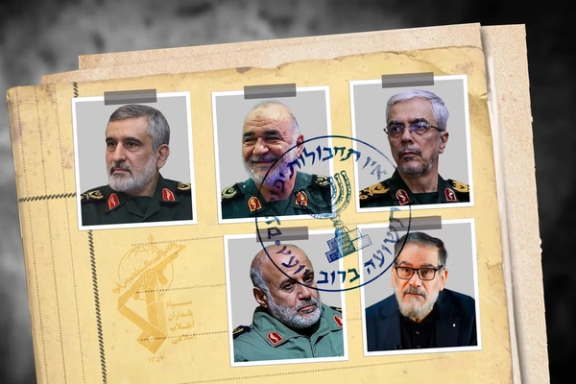
Israel’s strikes on Iran recall the surprise attack on Egypt in 1967, but in aim and execution they more closely resemble the recent campaigns against Hamas and Hezbollah that targeted leadership and capabilities to force strategic paralysis.
The strike was broad in scope, targeting senior commanders, nuclear sites, missile systems, weapons production facilities, and scientists involved in military projects.
Crucially, it came as the Islamic Republic was preparing for Sunday’s negotiations with Washington—amplifying the element of surprise. The tactics were highly unexpected and caught Tehran off guard.
Israel’s main goal was to eliminate the regime’s senior military hierarchy. That aim was largely achieved.
Confirmed killed were Mohammad Bagheri, Chief of the Armed Forces General Staff; Hossein Salami, IRGC Commander-in-Chief; Gholam Ali Rashid, head of Khatam al-Anbiya Central Command; Amir Ali Hajizadeh, IRGC Aerospace Force Commander; Mehdi Rabani, IRGC Deputy for Operations; and Ali Shamkhani, senior advisor to Supreme Leader Khamenei and head of the nuclear program.
The assassinations point to deep Israeli intelligence penetration into Iran’s security structure. Mossad appears to have access to top-level information.
Former Intelligence Minister Ali Younesi had warned a while ago that Israeli infiltration was so extensive senior officials should fear for their lives—a warning that now seems prescient.
Israel also killed several top nuclear scientists—the “brains” behind the weapons program. The knowledge infrastructure suffered a major blow, though not total collapse. Some veteran scientists have been confirmed dead, marking a serious setback to Iran’s nuclear ambitions.
Equally damaging, Iran’s air defenses collapsed at the critical moment. The November strike and this latest assault suggest Tehran’s systems are unable to counter Israeli air superiority when it matters most.
Israel’s air force targeted nuclear sites, especially in Natanz. While Tehran has disclosed little, Israeli officials say—and reported explosions suggest—that key infrastructure, built at enormous cost, was destroyed.
Israel also asserts to have struck multiple missile and rocket sites, as well as weapons factories, destroying hundreds of missiles and drones hidden underground. If confirmed, this would further demonstrate Israel’s deep military intelligence reach. Iran’s offensive capability has been badly degraded, though not entirely neutralized.
The operation was carried out by the Israeli military and Mossad. It showed not only air dominance but also intelligence and technological superiority—enough to operate freely on Iranian soil.
Israel has signaled the operation is ongoing.
Its vow to continue strikes suggests a preselected target bank and a broader strategy aimed at reducing Iran’s military threat to the lowest level.
The approach mirrors campaigns against Hamas and Hezbollah: dismantle leadership, cripple retaliatory capacity, and push the remaining structure toward surrender.
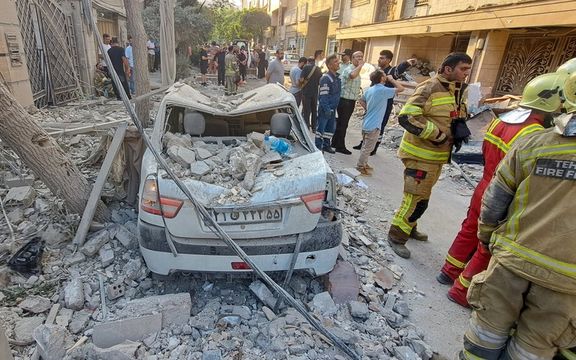
Israel launched Operation Rising Lion, a wide-ranging military campaign targeting Iran’s nuclear sites as well as military infrastructure and command. Here is a brief summary of events so far.
Iranian military command decimated
At least 20 top Iranian figures were killed, including:
Supreme Leader Khamenei made immediate appointments:
Trump backs strikes, says ‘more brutal’ planned
US President Trump praised the Israeli operation, warning Tehran to negotiate before “it’s too late”:
Civilian toll and domestic fallout
Unofficial Iranian reports say 78 killed, 329 injured in Tehran province.
Damage to nuclear and military sites
Iran vows to strike back
Iran says it will respond “decisively and proportionately”:
Regional and international reactions
Diplomatic flurry
Market and aviation Disruption
Israeli emergency measures
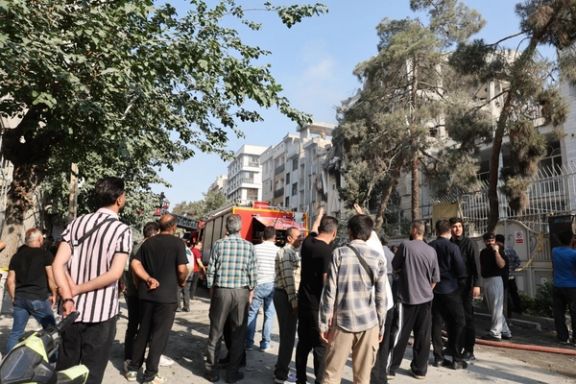
Some Iranians expressed gratitude to Israel for assassinating military and political officials they viewed with contempt in video and voice messages sent to Iran International TV.
“I wanted to thank Israel and Uncle Netanyahu for what they did last night and to tell Iran: You are nothing. (You say you are) a power in the region, but three of your top commanders were killed in a single attack,” a viewer said in his message.
“I want people to get out [on the streets to protest] and be united with each other and to topple this blood thirsty government,” she added.
In another message, a viewer said he was pleased by the Israeli attack which, according to the Israeli military hit dozens of military and nuclear sites and eliminated some of the country's top military leadership in an open-ended campaign dubbed "Rising Lion" by Netanyahu.
Iran has confirmed the deaths of several top commanders including the Revolutionary Guards (IRGC) Commander Hossein Salami, Chief of Staff of Armed Forces Mohammad Bagheri, and IRGC Aerospace Force Commander Amir-Ali Hajizadeh, and six nuclear scientists, including former chief of Iran's Atomic Energy Agency Fereydoun Abbasi.
There are also unconfirmed reports of the death of Ali Shamkhani, a top advisor to Supreme Leader Ali Khamenei, who has vowed a “severe punishment” and a “harsh response.
“Mr. Pezeshkian, do you remember saying Israel and America can strike Iran's nuclear facilities but can’t strike Iranian scientists? Israel just did that,” he asked. “Why do you speak so much nonsense?”
“You couldn’t do a damn thing! Thank you, thank you Uncle Netanyahu, even if it’s we [ordinary Iranians] who will suffer the consequences,” he added.
Following Israel’s military strike, the Iranian currency, the rial, experienced a sharp depreciation of at least 15% in the unofficial market.
The sudden plunge of the rial highlights growing public anxiety over potential escalation and lack of confidence in the government's ability to stabilize the economy amid intensifying geopolitical tensions.
Another Iran International viewer similarly thanked Israel but urged it not to forget to target Khamenei.
“No one approves of war, but I’m sure when it comes to the murderous and terrorist Islamic Republic, all the 80 or 90 million people in Iran approve of this attack,” she said.
“Now they will get the seriousness of the situation and will understand that although they may be able to bully the Iranian people and kill them on the streets, they can’t bully the world and the big powers,” she added.
In another message, a viewer expressed his happiness after realizing that the sound that woke him up was the sound of the explosion of Israeli bombs, not lightning.
“It was good news and a harbinger of freedom to all Iranians. Well done, Israel. You have avenged all those freedom-seeking youth who were torn apart and raped on the streets.”
In a statement shared online, Iran’s exiled crown prince, Reza Pahlavi, accused Khamenei of dragging the country into a war that does not reflect the will of the Iranian people, calling the current conflict "Khamenei’s war, not Iran’s."
He urged Iran's military, police, and intelligence personnel to distance themselves from what he described as a “corrupt and incompetent leadership” and to join the people.
The path forward, he said in his message, is the overthrow of the Islamic Republic through street protests and nationwide strikes.
Khamenei described the attack as a "crime" that revealed Israel's "evil nature" by targeting residential centers and said Israel will face “a bitter and painful end”.
In response, Iran launched a barrage of drones and missiles toward Israel just hours after the attack. Israeli defense officials claimed all drones were successfully intercepted.
A military official said in a Friday morning briefing that 200 fighter jets had been involved in the operation.
He said air defenses, ballistic missiles ready to launch to Israel and missile manufacturing sites and facilities were also targeted in the strikes. The operation came as Iran's nuclear program "is approaching the point of no return and is rapidly advancing toward obtaining a nuclear weapon", he told reporters.
"We struck their nuclear plan, and we struck military targets—before they had the ability to strike us with weapons of mass destruction, with nuclear weapons. We had no other choice, and we launched this operation now because this is the most appropriate time in light of this concrete threat. They have already obtained enough uranium for 15 nuclear weapons," he said.
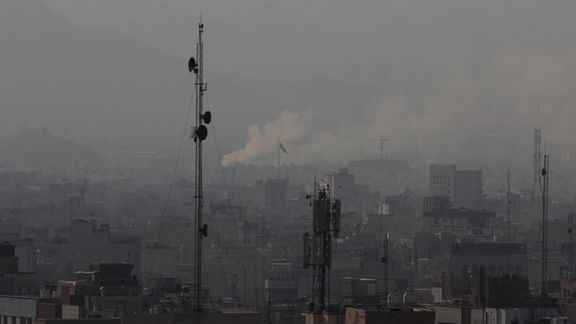
An Israeli official told Iran International that Israel carried out a complex and multi-phase operation that disabled the launch of hundreds of Iranian ground-to-ground missiles aimed at Israeli territory.
The official described the mission as “a strategic and heavy blow to the Islamic Republic and the IRGC (Islamic Revolutionary Guards Corps) Aerospace Force.”
According to the source, numerous Iranian missile transport vehicles were also knocked out.
Mossad disabled one of the Islamic Republic’s “most critical and sensitive systems" through a long-term intelligence campaign the official likened to Israel's remote detonation of pagers and walkie talkies belonging to Hezbollah leaders.
The latest operation involved the use of international front companies, the covert acquisition and smuggling of key components into Iran, and remote activation capabilities from nearly 2,000 kilometers away.
In a separate operation, Mossad is said to have targeted ground-to-ground missile launchers at the Espad Aabad base near Tehran using explosive-laden drones.
The Israeli official described the strike as “reminiscent of Ukraine’s drone operations against Russian airbases,” claiming that drones were pre-positioned near the installation and activated by operatives inside Iran.
A third, equally complex attack involved the use of precision-guided missiles launched deep within Iranian territory, targeting surface-to-air missile systems at multiple sites around Tehran.
The official said the mission was preceded by “months of detailed intelligence gathering,” the clandestine smuggling of missile systems into Iran, and the creation of an internal launch capability.
“This series of operations not only severely disrupted the Islamic Republic’s missile infrastructure,” the Israeli official concluded, “but also underscored Mossad’s deep penetration into the Iranian regime’s security and military architecture.”
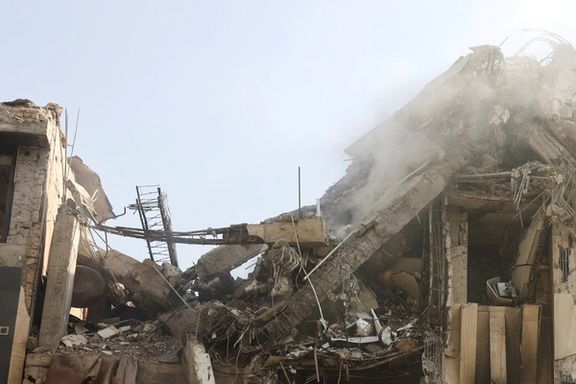
A senior Israeli security official told Iran International that Tehran must sign a nuclear deal or face further attacks that could end its rule, adding that Iran could avoid the Israeli attacks if it was honest in US talks.
“Iran can either sign an agreement or face ongoing attacks that will endanger the stability of its regime,” the official said on condition of anonymity.
“Iran deceived the United States during the negotiations and tried to buy time while continuing uranium enrichment,” the official added. “Had Iran entered the negotiations with sincere intentions, Israel would not have attacked.”
The comments appear to reflect a hardening of Israel’s stance toward Tehran after it had mostly focused its military blows on Iran's armed allies in the region but stopped short of signaling all-out war on the Islamic Republic.
“The strategy toward Iran will resemble the strategy used in Lebanon — the threat must not be allowed to materialize,” the source stated.
According to the official, the recent strikes have left Iran’s military apparatus in disarray. “The Iranians are currently in shock, their military leadership is virtually non-existent,” he claimed. “And more surprises are yet to come.”
Despite the intensity of the conflict, the source insisted that Israel’s actions are aimed at the Iranian establishment and not its people.
“Israel is not targeting the Iranian people but the Iranian regime,” he said. “The Iranian nation, with its proud history, deserves leadership that provides electricity and water — not one that spends the budget on global terrorism.”